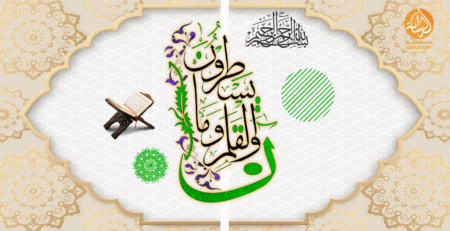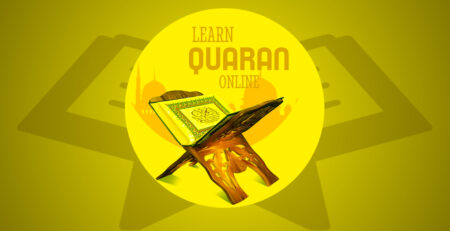Unveiling the Beauty of the Quran: A Guide for the General Public
Introduction: Exploring the Divine Wisdom
The Quran, the holy scripture of Islam, is more than just a book; it’s a guiding light, a source of wisdom, and a manifestation of divine revelation. In this article, we embark on a journey to unravel the profound teachings and timeless beauty encapsulated within its verses. Join us as we delve into the heart of Islam’s sacred text, exploring its significance, structure, and impact on millions worldwide.
Table of Contents
| Sr# | Headings |
|---|---|
| 1. | Understanding the Quran |
| 2. | Divine Revelation and Compilation |
| 3. | Structure and Organization |
| 4. | Themes and Verses |
| 5. | Language and Eloquence |
| 6. | Interpretation and Exegesis |
| 7. | Impact on Culture and Society |
| 8. | Contemporary Relevance |
| 9. | Misconceptions and Clarifications |
| 10. | Conclusion: Embracing the Quran’s Message |
Understanding the Quran
The Quran, often referred to as the “Words of Allah,” is the cornerstone of Islamic faith and practice. It serves as a comprehensive guide for Muslims, addressing matters of belief, morality, and law. But its significance extends beyond religious boundaries, offering profound insights into the human condition and the nature of existence.
Divine Revelation and Compilation
The Quran’s origin lies in divine revelation, delivered to the Prophet Muhammad over a period of 23 years through the angel Gabriel. Its verses were memorized and written down by companions of the Prophet, culminating in the compilation of the complete scripture after his passing. This meticulous preservation ensures the Quran’s authenticity and relevance across generations.
Structure and Organization
Structured into 114 chapters, known as Surahs, the Quran is arranged in a non-chronological order, with each Surah addressing various aspects of faith, guidance, and ethical conduct. The Surahs vary in length and thematic focus, offering a diverse tapestry of spiritual guidance and moral principles.
Themes and Verses
The Quran addresses a myriad of themes, including monotheism, prophethood, morality, and eschatology. Its verses emphasize the importance of compassion, justice, and humility, providing timeless wisdom for navigating life’s complexities. From narratives of past prophets to admonitions against injustice, the Quran’s verses resonate with universal truths and human experiences.
Language and Eloquence
Renowned for its eloquence and linguistic beauty, the Quran employs poetic language and rhetorical devices to convey its message with clarity and power. Its verses exhibit intricate rhyme, rhythm, and symmetry, captivating the hearts of believers and scholars alike. The divine eloquence of the Quran remains unparalleled, serving as a testament to its divine origin.
Interpretation and Exegesis
The interpretation of the Quran, known as Tafsir, involves a deep exploration of its meanings and nuances. Scholars employ various methodologies, including linguistic analysis, historical context, and jurisprudential principles, to derive insights from its verses. While certain passages may require scholarly elucidation, the Quran’s message is accessible to all who seek guidance with sincerity.
Impact on Culture and Society
Throughout history, the Quran has played a central role in shaping Islamic civilization and fostering intellectual, artistic, and scientific advancements. Its teachings have inspired diverse cultures and civilizations, leaving an indelible mark on humanity’s collective heritage. From architecture to literature, the Quran’s influence permeates every aspect of Islamic culture and society.
Contemporary Relevance
In today’s rapidly evolving world, the Quran continues to offer guidance and solace to millions of believers worldwide. Its timeless principles provide a moral compass amidst societal challenges and ethical dilemmas. Moreover, the Quran’s emphasis on social justice, environmental stewardship, and compassion resonates with contemporary concerns, making it a relevant source of inspiration for individuals of all backgrounds.
Misconceptions and Clarifications
Despite its profound significance, the Quran is often misunderstood or misrepresented. Misconceptions regarding its teachings and values abound, fueled by ignorance and prejudice. However, a deeper exploration of the Quran reveals its message of peace, tolerance, and coexistence. Clarifying misconceptions is essential in fostering mutual understanding and promoting dialogue among diverse communities.
Conclusion: Embracing the Quran’s Message
In conclusion, the Quran stands as a timeless testament to divine guidance and wisdom. Its beauty lies not only in its linguistic elegance but also in its profound insights into the human experience. As we navigate the complexities of life, let us turn to the Quran for guidance and inspiration, embracing its message of compassion, justice, and spiritual enlightenment.
Frequently Asked Questions
What makes the Quran unique among religious texts?
The Quran’s uniqueness stems from its status as the literal word of God in Islam. Muslims believe it to be the final and most comprehensive revelation, guiding humanity until the end of time.
How should one approach reading and understanding the Quran?
Approaching the Quran with an open heart and mind is essential. Seek guidance from knowledgeable scholars, study its verses in context, and reflect on their meanings in your life.
Does the Quran promote violence or extremism?
No, the Quran unequivocally condemns violence against innocent people and emphasizes the importance of peace, justice, and compassion. Extremist interpretations distort its true message.
Are there different versions or translations of the Quran?
While the Arabic text of the Quran remains unchanged, there are numerous translations in different languages. However, translations may vary in their interpretation and linguistic nuances.
Can non-Muslims benefit from reading the Quran?
Yes, the Quran’s message of universal values and ethical principles transcends religious boundaries. Non-Muslims can gain insights into Islam’s beliefs and practices by studying its teachings with an open mind.











Leave a Reply